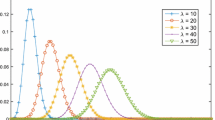Abstract
Science is increasingly becoming more and more data-driven. The ability of a geographically distributed community of scientists to access and analyze large amounts of data has emerged as a significant requirement for furthering science. In data intensive computing environment with uncountable numeric nodes, resource is inevitably unreliable, which has a great effect on task execution and scheduling. Novel algorithms are needed to schedule the jobs on the trusty nodes to execute, assure the high speed of communication, reduce the jobs execution time, lower the ratio of failure execution, and improve the security of execution environment of important data. In this paper, a kind of trust mechanism-based task scheduling model was presented. Referring to the trust relationship models of social persons, trust relationship is built among computing nodes, and the trustworthiness of nodes is evaluated by utilizing the Bayesian cognitive method. Integrating the trustworthiness of nodes into a Dynamic Level Scheduling (DLS) algorithm, the Trust-Dynamic Level Scheduling (Trust-DLS) algorithm is proposed. Moreover, a benchmark is structured to span a range of data intensive computing characteristics for evaluation the proposed method. Theoretical analysis and simulations prove that the Trust-DLS algorithm can efficiently meet the requirement of data intensive workloads in trust, sacrificing fewer time costs, and assuring the execution of tasks in a security way in large-scale data intensive computing environment.
Similar content being viewed by others
References
Bryant, R.E.: Data-intensive supercomputing: the case for DISC. Technical report CMU-CS-07-128 (2007)
Sun, X.H., Chen, Y., Byna, S.: Scalable computing in multicore era. In: Proceedings of the International Symposium on Parallel Algorithms, Architectures and Programming (PAAP‘08) (2008)
I-Rewinin, H.E., Lewis, T.G., Ali, H.H.: Task Scheduling in Parallel and Distributed System. Prentice Hall, Englewood Cliffs, New Jersey, pp. 401–403 (1994)
Wu, M., Gajski, D.: Hypertool. A programming aid for message passing system. IEEE Trans. Parallel Distrib. Syst. 1(3), 330–343 (1990)
Hwang, J.J., Chow, Y.C., Anger, F.D., et al.: Scheduling precedence graphics in systems with inter-processor communication times. SIAM J. Comput. 18(2), 244–257 (1989)
I-Rewinin, H.E., Lewis, T.G.: Scheduling parallel programs onto arbitrary target machines. J. Parallel Distrib. Comput. 9(2), 138–153 (1990)
Sih, G.C., Lee, E.A.: A compile-time scheduling heuristic for interconnection-constraint heterogeneous processor architectures. IEEE Trans. Parallel Distrib. Syst. 4(2), 175–187 (1993)
Iverson, M., Ozguner, F.: Dynamic competitive scheduling of multiple DAGs in a distributed heterogeneous environment. In: Proceedings of the Seventh Heterogeneous Computing Workshop, pp. 70–78. IEEE Computer Society Press, Orland (1998)
Iverson, M., Ozguner, F.: Hierarchical, competitive scheduling of multiple DAGs in a dynamic heterogeneous environment. Distrib. Syst. Eng. 6(3), 112–120 (1999)
Dogan, A., Ozguner, F.: Matching and scheduling algorithms for minimizing execution time and failure probability of applications in heterogeneous computing. IEEE Trans. Parallel Distrib. Syst. 13(3), 308–323 (2002)
Shatz, S.M., Wang, J.P., Goto, M.: Task allocation for maximizing reliability of distributed computer systems. IEEE Trans. Comput. 41(9), 1156–1168 (1992)
Courville, A.C., Daw, N.D., Touretzky, D.S.: Bayesian theories of conditioning in a changing world. Trends Cogn. Sci. 10(7), 294–300 (2006)
Tenenbaum, J.B., Griffiths, T.L., Kemp, C.: Theory-based Bayesian models of inductive learning and reasoning. Trends Cogn. Sci. 10(7), 309–318 (2006)
Wang, W., Zeng, G.S.: Trusted dynamic scheduling for large-scale parallel distributed systems. In: 40th International Conference on Parallel Processing Workshops, Taipei City, Taiwan, 13–16 September (2011)
Jøsang, A., Ismail, R.: The Beta reputation system. In: Proceedings of the 15th Bled Conference on Electronic Commerce. IEEE Computer Society, Bled, Slovenia (2002)
Mourad, H., Franck, B.: Reliability and scheduling on systems subject to failures. In: Proceedings of ICPP, IEEE Computer Society (2007)
Hecherman D.: A tutorial on learning with Bayes networks. Technical Report MSR-TR-95-06, Microsoft Research Advanced Technology Division, Microsoft Corporation (1995)
Peterson, L., Anderson, T., Culler, D., et al.: A blueprint for introducing disruptive technology into the Internet. In: Proc. HotNets -I, ACM Press, Princeton (2002)
Hadoop Apache: Apache hadoop. http://hadoop.apache.org/core/ (2008–2010)
Gorton, I.: MeDICi: Middleware for data-intensive computing, Pacific Northwest National Laboratory, Richland, WA. PNNL-SA-62323 (2008)
DeCandia, G., Hastorun, D., et al.: Dynamo: Amazon’s highly available key-value store. In: Proc. of the 21st ACM Symp. on Operating Systems Principles, pp. 205–220. ACM Press, New York (2007)
Isard, M., Budiu, M., et al.: Dryad: distributed data-parallel programs from sequential building blocks. In: Proc. of the 2nd European Conf. on Computer Systems (EuroSys)., pp. 59–72 (2007)
Aguilera, M.K., Merchant, A., et al.: Sinfonia: a new paradigm for building scalable distributed systems. In: Proc. of the 21st ACM Symp. on Operating Systems Principles, pp. 159–174. ACM Press, New York (2007)
Chiba, T., Kielmann, T., et al.: Dynamic load-balanced broadcast for data-intensive applications on clouds. CCGrid (2010)
Bicer, T., Jiang, W., Agrawal, G.: Supporting fault tolerance in a data-intensive computing middleware. IEEE IPDPS (IPDPS‘10), Atlanta, USA (2010)
Wang, W., Zeng, G.S.: Cloud-DLS: dynamic trusted scheduling for cloud computing. Exp. Syst. Appl. 39(3), 2321–2329 (2012)
Author information
Authors and Affiliations
Corresponding author
Rights and permissions
About this article
Cite this article
Wang, W., Zeng, G. Bayesian Cognitive Model in Scheduling Algorithm for Data Intensive Computing. J Grid Computing 10, 173–184 (2012). https://doi.org/10.1007/s10723-012-9205-8
Received:
Accepted:
Published:
Issue Date:
DOI: https://doi.org/10.1007/s10723-012-9205-8




